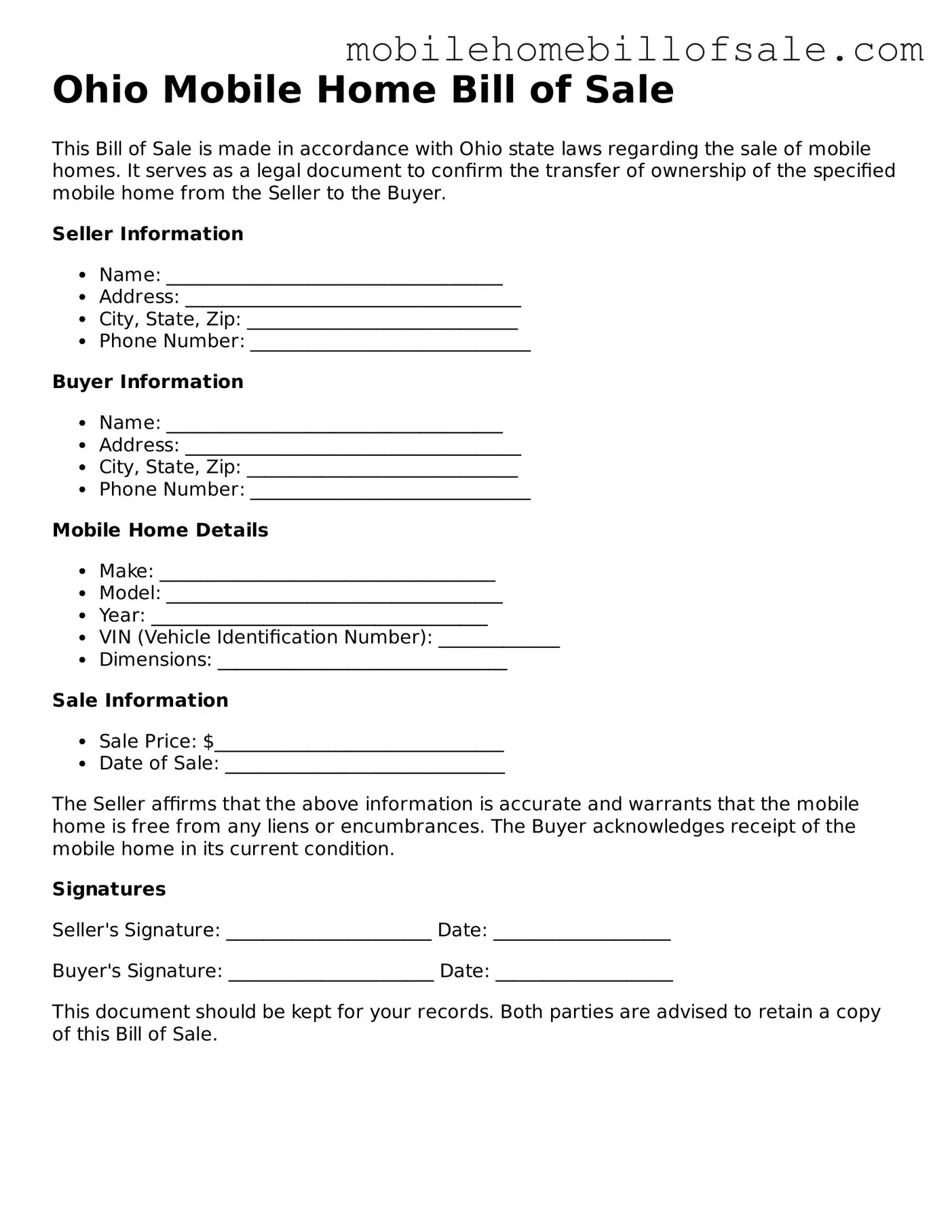The Ohio Mobile Home Bill of Sale form shares similarities with the Vehicle Bill of Sale. Both documents serve as proof of transfer for ownership, detailing essential information such as the buyer's and seller's names, addresses, and signatures. Just like the mobile home bill of sale, the vehicle version includes specifics about the item being sold, including its identification number and any relevant conditions of the sale. This ensures that both parties have a clear understanding of the transaction, providing legal protection and clarity in ownership transfer.
Another document akin to the Ohio Mobile Home Bill of Sale is the Boat Bill of Sale. This form, much like its mobile home counterpart, facilitates the transfer of ownership for watercraft. It includes similar elements such as the buyer and seller's information, a description of the boat, and any warranties or conditions attached to the sale. The goal is the same: to provide a legal record that protects both parties and outlines the terms of the transaction.
The Real Estate Purchase Agreement is also comparable to the Mobile Home Bill of Sale. While it pertains to real property rather than movable structures, it shares the fundamental purpose of documenting a transfer of ownership. This agreement details the buyer and seller's identities, the property description, and the terms of the sale. Both documents emphasize the importance of clarity and mutual consent in the sale process, ensuring that all parties understand their rights and responsibilities.
In addition, the Personal Property Bill of Sale serves a similar function. This document is used for various items, from furniture to electronics, and it provides a written record of the sale. Like the mobile home bill of sale, it includes details about the item, the parties involved, and the sale terms. This form is crucial for establishing ownership and protecting both the buyer and seller in case of disputes.
The Lease Agreement also bears resemblance to the Ohio Mobile Home Bill of Sale. While it primarily governs the rental of property rather than a sale, it includes many of the same elements, such as the identities of the parties, property details, and terms of use. Both documents aim to clarify the rights and obligations of the parties involved, ensuring that everyone understands their role in the transaction.
The Promissory Note is another document that shares a similar purpose. Although it focuses on the borrowing and lending of money rather than the sale of property, it outlines the terms of a financial agreement between two parties. Both the promissory note and the mobile home bill of sale establish clear expectations and responsibilities, providing a framework for accountability and legal recourse if necessary.
Lastly, the Affidavit of Ownership is akin to the Mobile Home Bill of Sale in that it serves to establish ownership of a property. This document is often used when the original title is lost or unavailable. It includes information about the property and the owner, affirming the seller's right to transfer ownership. Both documents aim to provide legal assurance and clarity in ownership, protecting the interests of all parties involved.

